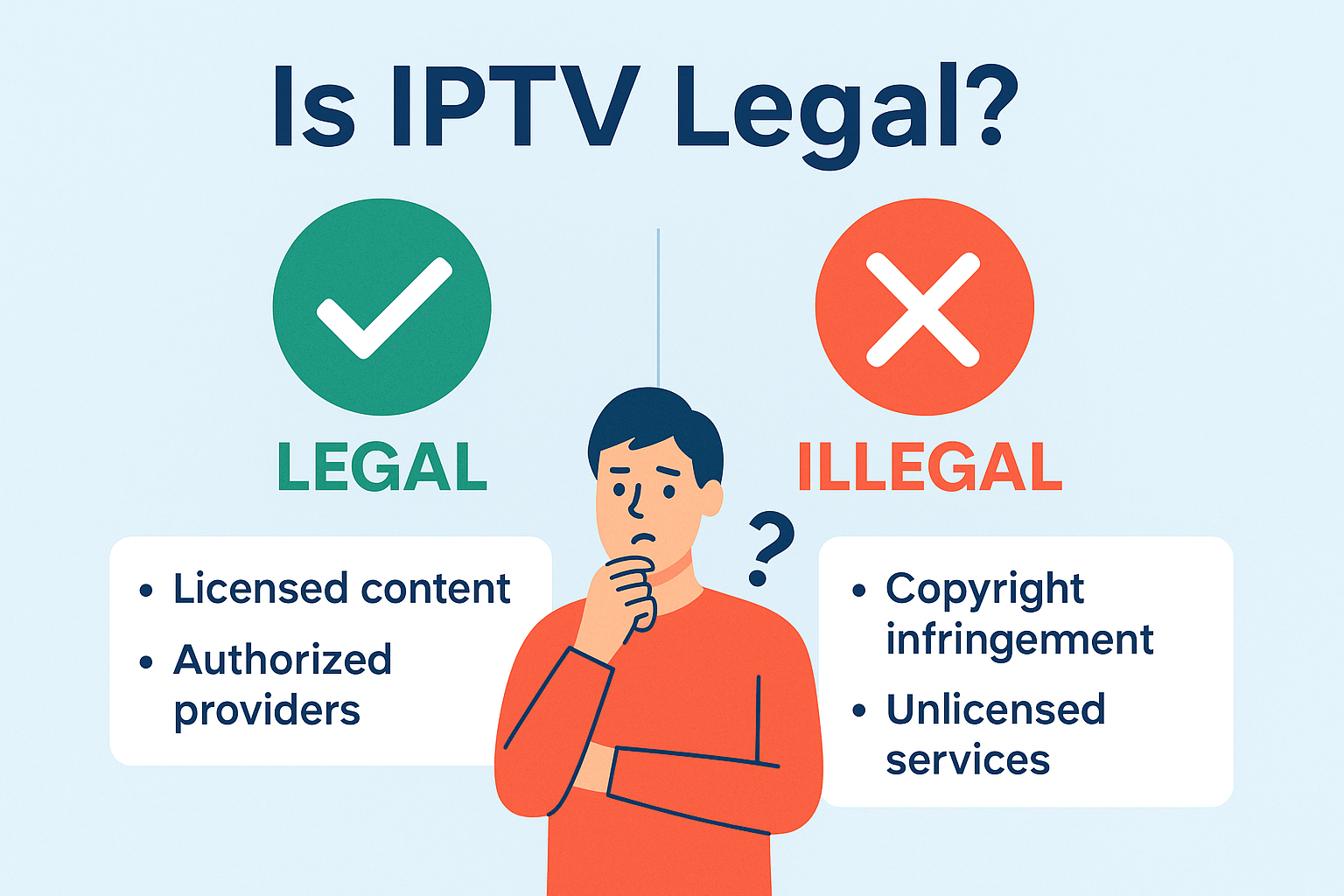
IPTV (Internet Protocol Television) has become one of the most popular ways to watch live TV, movies, and sports worldwide. But one question keeps coming up: Is IPTV legal? The answer isn’t as simple as “yes” or “no.” In this guide, we’ll break it down so you understand the rules in 2025.
✅ When IPTV Is Legal
IPTV is perfectly legal when:
- The content is licensed by the provider
- You’re watching free-to-air channels
- You use services that have agreements with TV networks, studios, and distributors
Examples include:
- ULTRA IPTV PRO, which offers legitimate, licensed access to public and premium channels
- Official apps like Netflix, Disney+, Hulu, or Amazon Prime (these use IPTV technology too)
❌ When IPTV Is Illegal
It becomes illegal when:
- The service streams copyrighted content without permission
- The provider doesn’t have licensing agreements
- It offers pirated movies, sports events, or TV shows
Penalties can include:
- Heavy fines
- ISP blocking the service
- Legal action in some countries
🌍 Different Laws by Country
IPTV laws vary worldwide:
- Europe: Strict copyright enforcement (UK, Germany, France)
- USA & Canada: Strong anti-piracy laws, with ISP monitoring
- Middle East & Asia: Varies, some countries block unlicensed IPTV
- Africa: Mostly unregulated, but laws are catching up
🔒 How to Stay Safe Using IPTV
- Choose licensed providers like ULTRA IPTV PRO
- Avoid “free” IPTV lists from unknown sources
- Use a VPN for privacy if local laws are unclear
- Keep proof of your subscription and its terms
💡 Conclusion
IPTV is a technology, not inherently illegal. The legality depends entirely on the source of the content.
If you choose licensed and reputable providers, you can enjoy IPTV safely and without worry.
